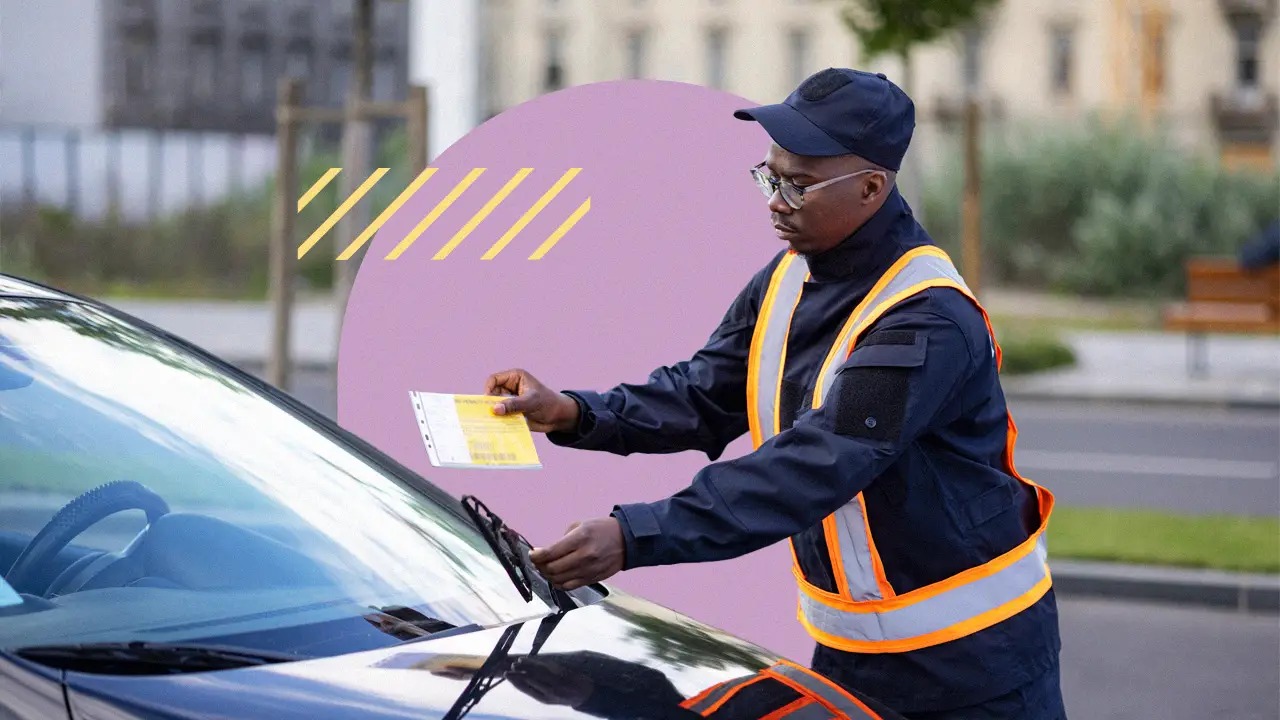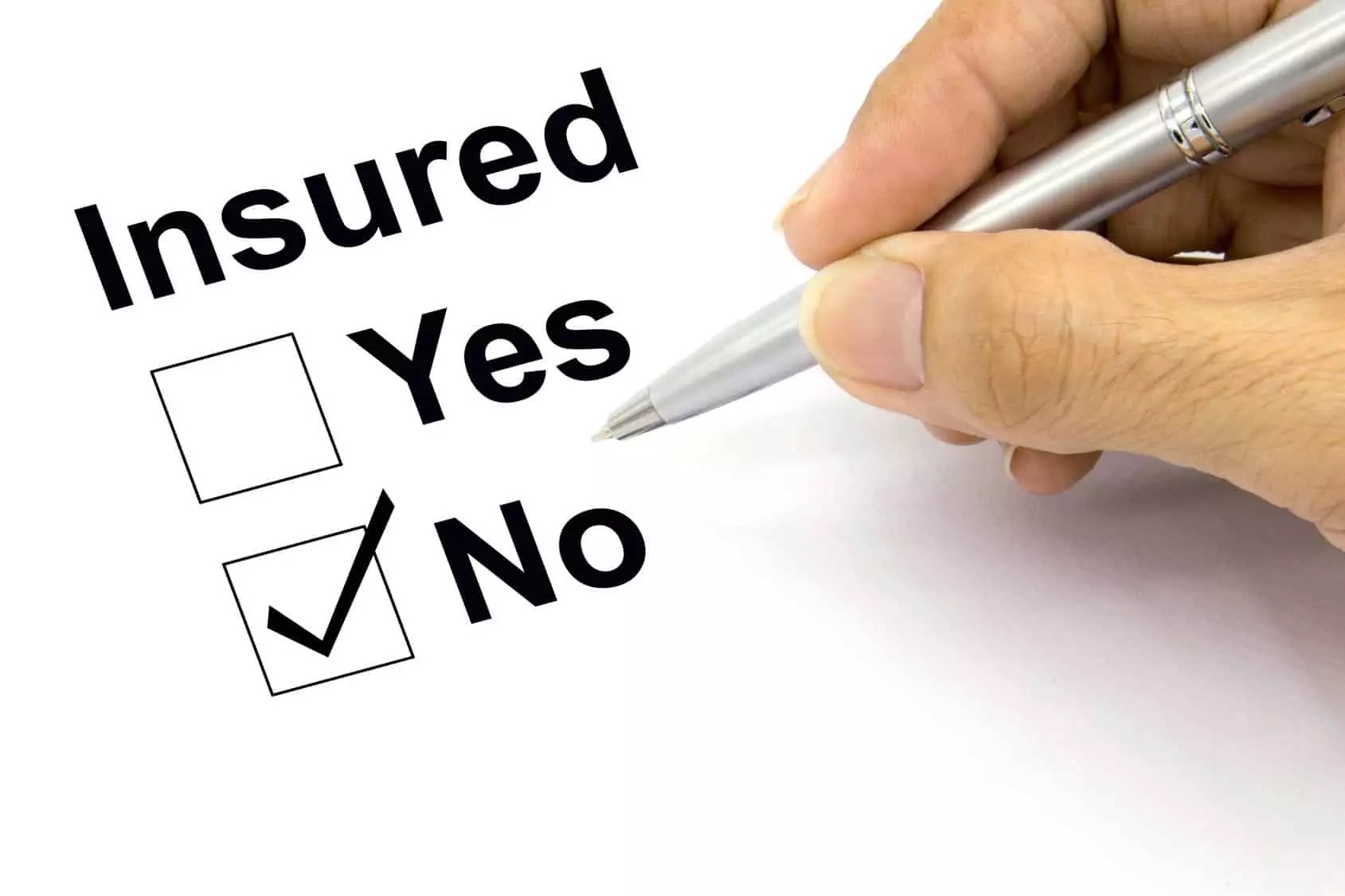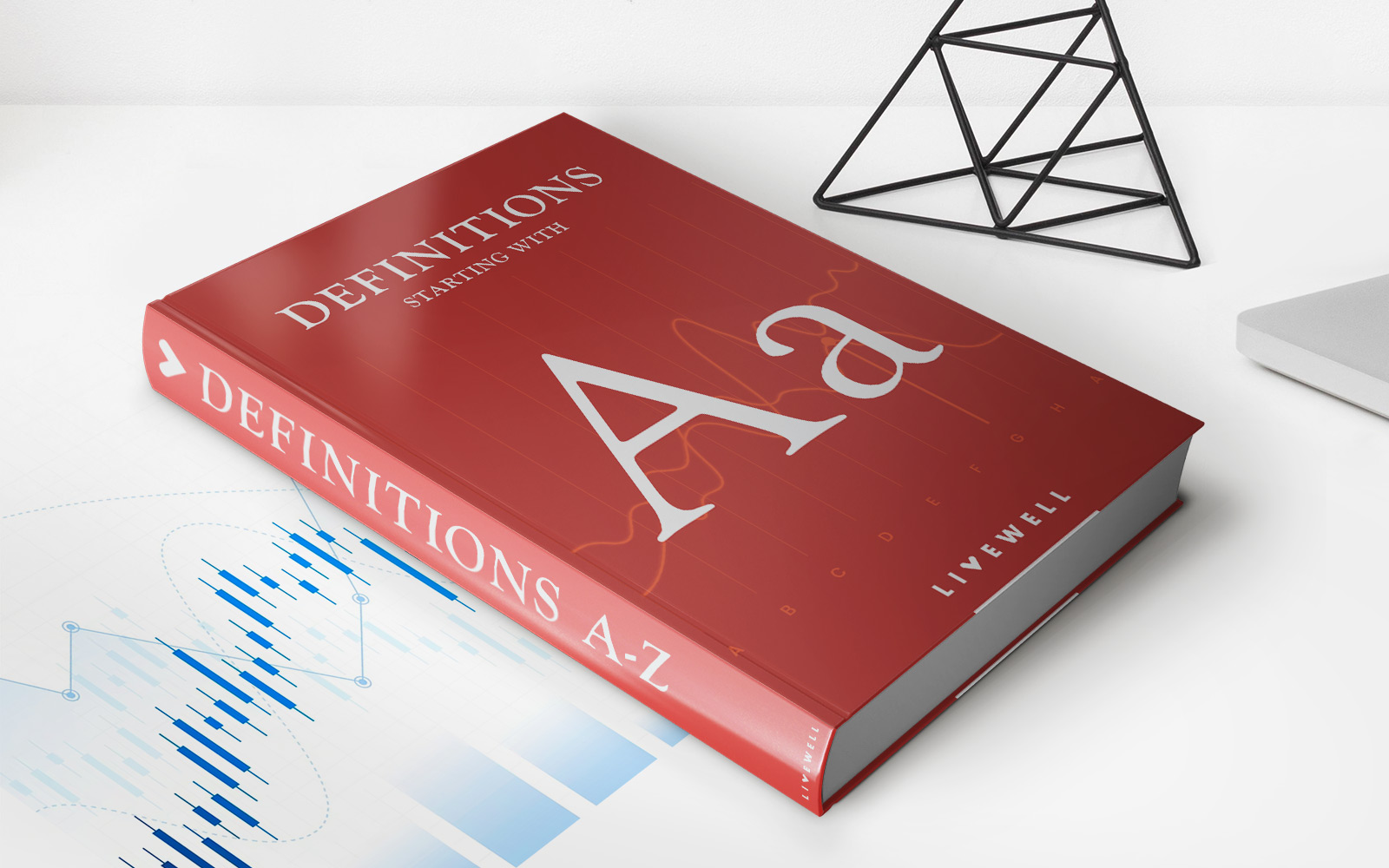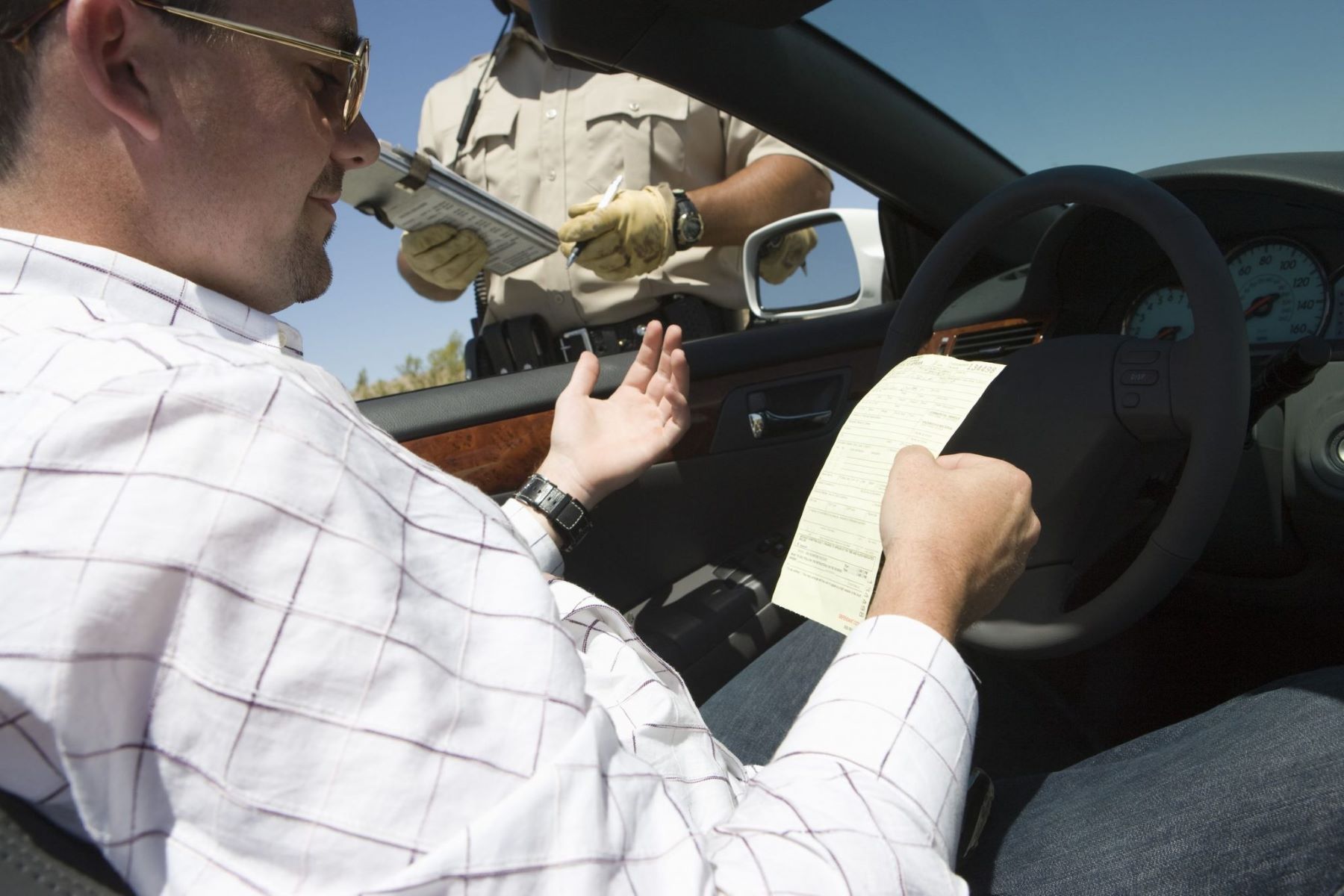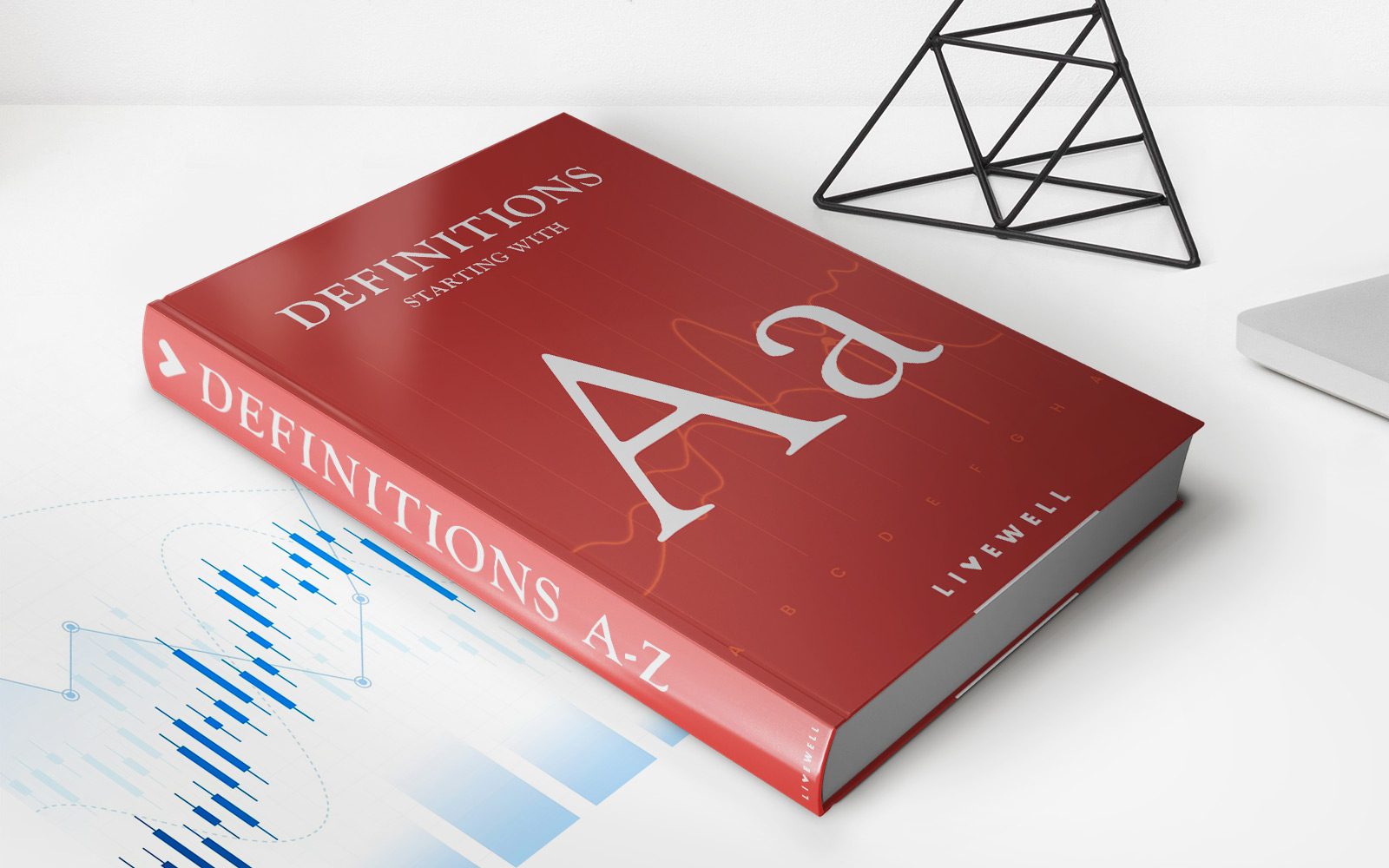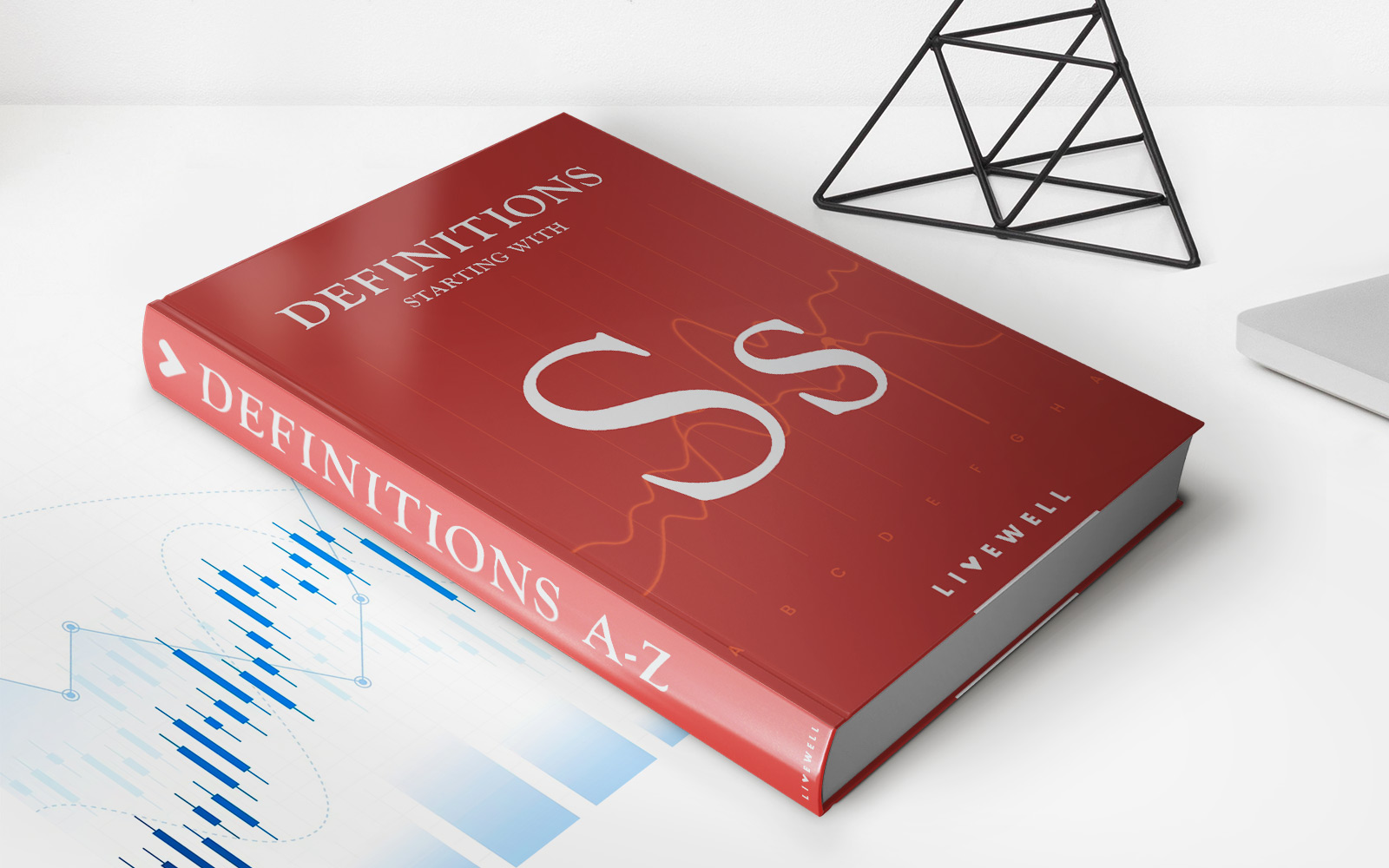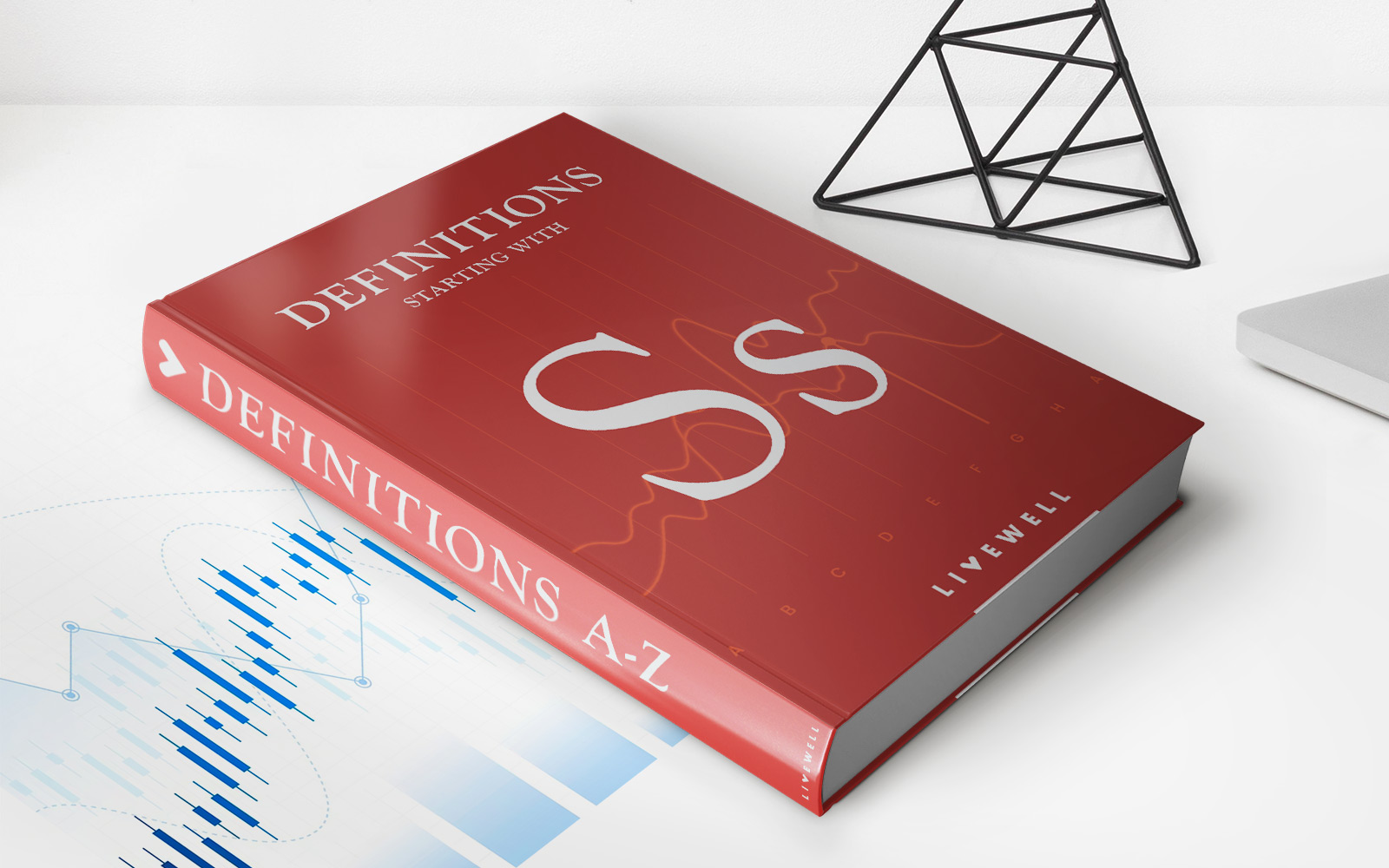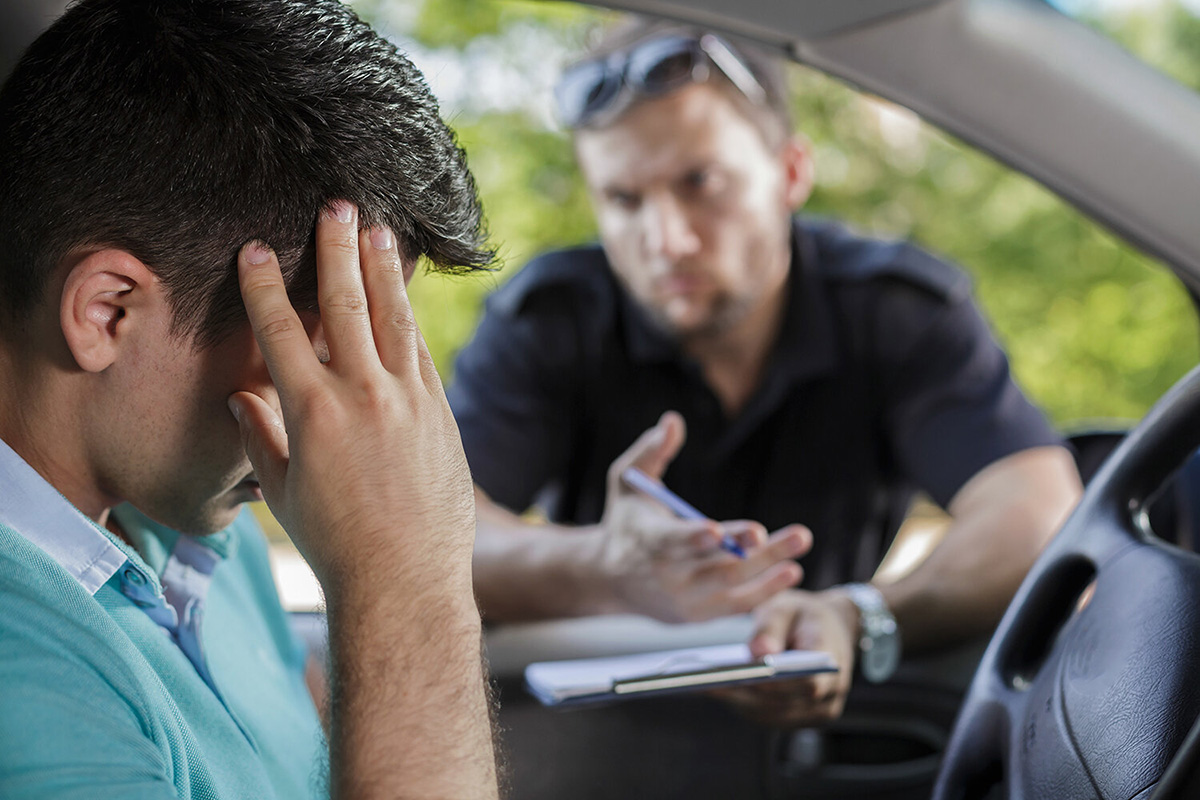

Finance
How Much Is A Ticket For Not Having Insurance?
Published: November 16, 2023
Find out the cost of a ticket for driving without insurance and learn how it can affect your finances. Stay informed and protect yourself.
(Many of the links in this article redirect to a specific reviewed product. Your purchase of these products through affiliate links helps to generate commission for LiveWell, at no extra cost. Learn more)
Table of Contents
- Introduction
- Understanding the Consequences of Driving Without Insurance
- Factors That Affect Ticket Costs for Not Having Insurance
- The Average Fine for Driving Without Insurance
- Additional Penalties and Consequences
- Possible Defenses Against Not Having Insurance
- Ways to Prevent Driving Without Insurance
- Conclusion
Introduction
Driving without insurance can have serious consequences, both legally and financially. In most countries, having auto insurance coverage is not only a requirement, but it also provides protection and peace of mind in the event of an accident. However, there are times when drivers might find themselves without insurance coverage, either by choice or due to unforeseen circumstances.
Whether it’s due to financial difficulties, a lapse in coverage, or simply neglecting to purchase a policy, driving without insurance is a risky endeavor that can lead to severe penalties. In this article, we will explore the implications of driving without insurance and shed light on the potential consequences that drivers may face.
Understanding the implications of driving without insurance is crucial for everyone who gets behind the wheel. It not only protects you and your vehicle but also safeguards other drivers and pedestrians from financial harm in case of an accident.
So, what happens if you drive without insurance? Let’s delve into the topic and find out.
Understanding the Consequences of Driving Without Insurance
Driving without insurance is a serious offense that can result in a range of consequences. Not only does it pose a risk to your financial stability, but it also puts you at odds with the law. The consequences of driving without insurance vary depending on your location and local laws, but they typically involve both legal penalties and potential financial repercussions. Let’s take a closer look at some of the potential consequences:
- Legal Penalties: If you are caught driving without insurance, you may be subject to various legal penalties. These can include fines, suspension of your driver’s license, and even potential jail time in some cases. The severity of the penalties will depend on factors such as your prior driving record and the specific laws in your jurisdiction.
- Financial Responsibility: When you are involved in an accident, whether it’s your fault or not, having insurance provides financial protection. Without insurance, you are personally responsible for any damages or injuries that result from the accident. This can lead to significant financial strain, especially if the accident involves multiple vehicles or injuries.
- Lawsuits: Driving without insurance leaves you vulnerable to legal action. If you cause an accident and the other party sustains injuries or property damage, they have the right to sue you for compensation. This can result in costly legal fees, settlements, and judgments against you.
- License Suspension/Revocation: In many jurisdictions, driving without insurance can lead to the suspension or revocation of your driver’s license. This means you will lose your driving privileges, potentially making it difficult to commute to work or carry out daily responsibilities.
It is important to note that even if you are not at fault in an accident, not having insurance may complicate the claims process. Without insurance, you may face challenges in seeking compensation for damages or injuries from the responsible party.
Next, we will explore some of the factors that can influence the cost of a ticket for not having insurance.
Factors That Affect Ticket Costs for Not Having Insurance
When it comes to receiving a ticket for driving without insurance, the costs can vary depending on several factors. These factors can influence the severity of the penalties imposed by the legal system. Understanding these factors is essential for drivers to comprehend the potential financial consequences they may face. Here are some key factors that can affect the ticket costs:
- Jurisdiction: The jurisdiction in which the offense occurs plays a significant role in determining the ticket costs for not having insurance. Each jurisdiction has its own laws and regulations regarding insurance requirements and penalties, which can vary greatly. It’s important to be aware of the specific laws in your area to understand the potential costs.
- Prior Offenses: If you have previously been caught driving without insurance, it can impact the ticket costs for subsequent offenses. Repeat offenses are often met with more severe penalties and higher fines. The presumption is that repeat offenders have not learned from their previous mistakes and require more stringent consequences.
- Duration of Coverage Gap: The length of time you have been driving without insurance can also impact the ticket costs. If it is your first offense, a shorter coverage gap may result in a lesser penalty compared to a longer duration of driving uninsured.
- Driving Record: Your overall driving record can also come into play when determining the ticket costs. If you have a clean driving record with few or no prior offenses, you may receive a more lenient penalty. However, if you have a history of other traffic violations or accidents, the ticket costs for driving without insurance may be higher.
- Circumstances of the Offense: The circumstances surrounding the offense can influence the ticket costs as well. For example, if you were involved in an accident while driving without insurance, the costs may be higher due to the potential damages or injuries caused. Additionally, if you were caught during a routine traffic stop versus being caught in the act of committing another driving violation, it may affect the severity of the penalties.
It’s worth noting that these factors can interact with each other, and multiple factors can contribute to higher ticket costs. Therefore, it’s important for drivers to be aware of their insurance requirements and maintain proper coverage to avoid these potential penalties.
Now, let’s move on to exploring the average fine for driving without insurance.
The Average Fine for Driving Without Insurance
Driving without insurance is not only illegal but can also come with significant financial consequences. One of the most common penalties for driving without insurance is the imposition of fines. The amount of the fine can vary depending on various factors, including where the offense takes place and the specific circumstances surrounding the incident.
The average fine for driving without insurance can range from $100 to $500 or more. However, it’s important to note that this is just an estimate, and the actual fine amount may be higher or lower based on the jurisdiction and other factors. Some jurisdictions may levy fines based on a progressive scale, meaning that repeated offenses can result in higher penalties.
In addition to the base fine, there may be additional fees and surcharges that can significantly increase the overall financial impact. These can include administrative fees, court costs, and charges related to reinstating your driver’s license or insurance coverage.
It’s essential to keep in mind that fines for driving without insurance are meant to discourage individuals from breaking the law and to ensure that drivers take responsibility for their actions. Moreover, fines alone may not be the only financial consequence of driving without insurance. In the event of an accident, you may be held personally liable for any damages or injuries caused, which can result in substantial financial obligations.
Ultimately, it’s crucial to prioritize obtaining and maintaining the necessary auto insurance coverage to avoid the financial burden of fines and potential legal issues associated with driving without insurance.
Next, we will explore additional penalties and consequences that drivers may face for not having insurance.
Additional Penalties and Consequences
In addition to fines, driving without insurance can lead to a range of additional penalties and consequences. These penalties are imposed to deter drivers from operating vehicles without proper insurance coverage and to ensure the safety and financial protection of all road users. Here are some of the additional penalties and consequences that drivers may face:
- License Suspension: In many jurisdictions, driving without insurance can result in the suspension of your driver’s license. The duration of the suspension can vary depending on the severity of the offense and the laws of the specific jurisdiction. During the period of license suspension, you will be unable to legally operate a vehicle.
- Vehicle Impoundment: In certain cases, driving without insurance can result in the impoundment of your vehicle. This means that your vehicle may be seized by law enforcement and held until proper insurance is obtained or other penalties are satisfied. Vehicle impoundment can lead to additional fees and expenses, including impound fees and storage costs.
- Higher Insurance Rates: Even if you are not caught driving without insurance, having a lapse in coverage or a history of driving uninsured can result in significantly higher insurance rates. Insurance companies consider drivers with a history of driving uninsured as higher risk, and therefore, they may increase premiums or offer coverage at less favorable terms.
- SR-22 Requirement: In some cases, drivers who have been caught driving without insurance may be required to file an SR-22 form. An SR-22 is a certificate of financial responsibility that proves you have insurance coverage. It is an additional requirement to reinstate your driver’s license after a suspension or in cases where insurance compliance is mandated.
- Criminal Charges: In certain circumstances, driving without insurance can result in criminal charges, particularly if it’s a repeat offense or if the incident involves other criminal activities, such as driving under the influence. Criminal charges can lead to more severe penalties, including fines, probation, or even imprisonment.
It’s important to remember that the specific penalties and consequences can vary depending on your location and the circumstances of the offense. It’s always advisable to consult with a legal professional or research the laws specific to your jurisdiction to understand the potential outcomes of driving without insurance.
In the following section, we will discuss possible defenses against not having insurance.
Possible Defenses Against Not Having Insurance
While driving without insurance is generally considered a violation of the law, there may be certain defenses that can be utilized depending on the circumstances of the case. It is important to consult with a legal professional to understand the specific options available to you based on your jurisdiction. Here are some possible defenses that may be applicable:
- Insurance Lapse Due to Administrative Error: If you can provide evidence that your insurance coverage lapsed due to an administrative error, such as incorrect paperwork or the failure of your insurer to properly process your payment, you may have a valid defense. Keeping records of your communication with your insurance company can be instrumental in proving your case.
- Insurance Coverage Was in Place at the Time: If you were cited for driving without insurance but had valid coverage at the time of the incident, you can present evidence of your insurance card or policy to challenge the ticket. It is essential to ensure that you have the necessary documentation readily available to prove your coverage.
- Unforeseen Circumstances: In some cases, unforeseen circumstances, such as a sudden cancellation of an insurance policy due to the insurance company’s financial troubles or an unavoidable interruption in coverage, can be used as a defense. However, this defense may require supporting evidence and is highly dependent on the specific circumstances surrounding the incident.
- Mistaken Identity: If you believe you were wrongly accused of driving without insurance due to mistaken identity, you can present evidence to prove that you were not the driver involved in the offense. This defense may require eyewitness testimony or other forms of evidence to support your claim.
- Necessity Defense: In rare cases, the necessity defense may be applicable if you can demonstrate that driving without insurance was the only available option to avoid immediate harm or danger. This defense is often challenging to prove and typically requires strong evidence and legal expertise.
It is crucial to remember that the effectiveness of these defenses can vary depending on the jurisdiction and the details of your case. Consulting with an attorney who specializes in traffic law can help you understand the best approach and defense strategy to take based on your specific circumstances.
Next, we will discuss ways to prevent driving without insurance.
Ways to Prevent Driving Without Insurance
Driving without insurance can lead to significant legal and financial consequences. To avoid finding yourself in this situation, it’s important to take proactive steps to prevent driving without insurance. Here are some measures you can implement to ensure you have proper coverage:
- Research Insurance Requirements: Familiarize yourself with the insurance requirements of your jurisdiction. Different states or countries have varying laws regarding the minimum coverage limits and types of insurance required. Understanding these requirements will help you make informed decisions when purchasing a policy.
- Regularly Review Your Insurance Policy: Regularly review your insurance policy to ensure it is up to date and meets your needs. Evaluate your coverage limits, deductibles, and any additional coverage you might require. Make adjustments as necessary to ensure you have adequate protection.
- Set Reminders for Renewal: Set reminders for policy renewal dates to avoid accidental lapses in coverage. Missing a renewal deadline can result in driving without insurance unknowingly. Take advantage of technology by setting reminders on your phone or using online calendar tools to stay on top of renewal dates.
- Automatic Payments or Scheduled Payments: Enroll in automatic payment options or set up scheduled payments for your insurance premiums. This can help ensure that your payments are made on time, reducing the risk of lapses in coverage due to forgetfulness or oversight.
- Keep Proof of Insurance Easily Accessible: Always keep a physical or digital copy of your insurance card readily available in your vehicle or on your smartphone. This will help you provide proof of insurance during routine traffic stops or in the event of an accident.
- Explore Payment Options: If you are facing financial difficulties, explore payment options or installment plans with your insurance provider. This can help make insurance more affordable and ensure continuous coverage.
- Consider Bundling Insurance Policies: Check if your insurance provider offers discounts for bundling multiple insurance policies. Combining your auto insurance with other policies, such as home or renter’s insurance, can lead to cost savings.
- Shop Around for the Best Rates: Regularly compare insurance quotes from different providers to ensure you are getting the best rates. Insurance premiums can vary significantly, so taking the time to shop around can potentially save you money while still maintaining proper coverage.
By consistently following these preventative measures, you can minimize the risk of driving without insurance and ensure that you are legally and financially protected on the road.
Lastly, let’s conclude the article by summarizing the main points discussed.
Conclusion
Driving without insurance is not only a violation of the law, but it also exposes you to significant legal and financial risks. Understanding the consequences of driving without insurance and taking proactive steps to prevent it is crucial for every driver. By following the recommendations outlined in this article, you can protect yourself, your vehicle, and other road users from unnecessary harm and financial burdens.
We have explored the potential consequences of driving without insurance, including legal penalties, financial responsibilities, and additional repercussions such as license suspension and vehicle impoundment. We have also discussed possible defenses that can be utilized in certain circumstances.
To prevent driving without insurance, it is essential to stay informed about the insurance requirements in your jurisdiction, regularly review and update your insurance coverage, and set reminders for policy renewals. Keeping proof of insurance readily accessible and exploring payment options can also help ensure continuous coverage. Additionally, shopping around for the best rates and considering policy bundling can contribute to obtaining affordable and adequate insurance protection.
Remember, maintaining proper insurance coverage not only fulfills your legal obligations but also provides financial security and peace of mind in case of an accident or unforeseen circumstances. Prioritizing insurance coverage is a responsible and wise decision that protects both you and others on the road.
It is important to consult with a legal professional or insurance agent to fully understand the specific laws and requirements in your area. They can provide tailored advice based on your unique circumstances.
By adhering to these guidelines and being proactive in your approach to insurance, you can ensure that you are a responsible and compliant driver, minimizing the risk of driving without insurance and its associated consequences.
Drive safely and responsibly, and always prioritize proper insurance coverage to protect yourself and others on the road.

